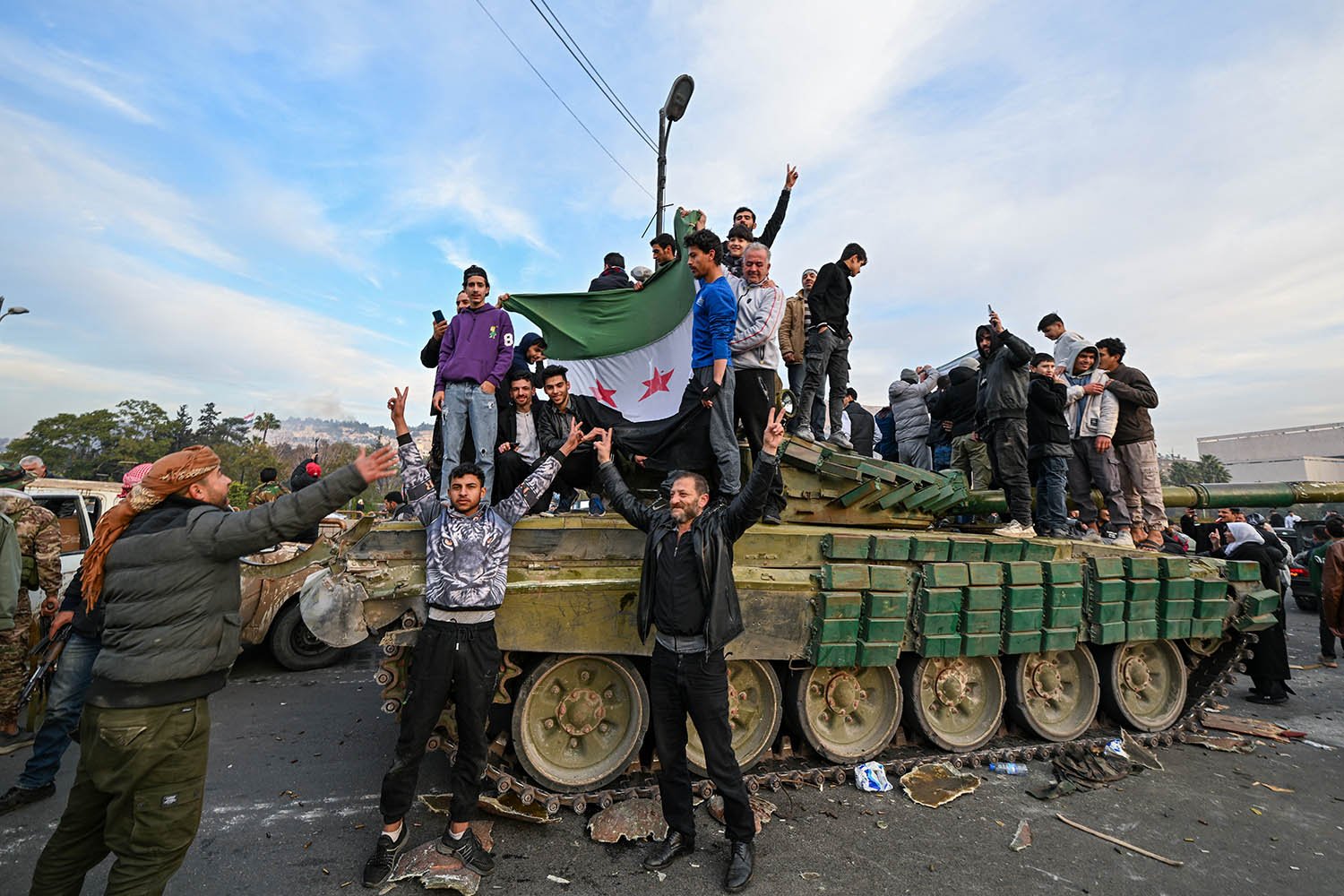The toppling of Bashar al-Assad – eye surgeon, dictator, “butcher of Damascus”, Russian puppet – has reverberated across the Middle East and forced a flustered Russian foreign minister to admit: “Yes, we lost in Syria.”
Last night Assad and his family were granted asylum in Moscow “on humanitarian grounds”.
So what? A tyrant who made refugees of millions is now a refugee himself. He left
- a country brutalised by more than half a century of mass incarceration and civil war;
- a region fundamentally altered, with Iran weakened and its proxies in retreat; and
- a former prime minister transferring power to an interim government, while victorious militants from Hayat Tahrir al-Sham (HTS) look like the real power in the land.
What this means for Syria. Jubilation on the streets of major cities, where militants broke open the country’s fearsome prisons and crowds pulled down statues of Assad and his father Hafez. But also anxiety over
- how militants who were once part of a breakaway group of Al Qaeda will honour their promise of protection for minorities;
- whether their pledges to run cities through local administrations mean much; and
- whether Syria can survive as a unitary state when much of its north east is controlled by Kurdish rebels.
And Iran? Tehran has lost a key ally following days of diplomatic efforts to save Assad – days in which it became clear Iran was unwilling to back him with major military power. Iran’s foreign ministry did a swift about-turn after Assad fled, issuing a statement that Syrians should decide the future of their country themselves, “without any destructive interference or external imposition”.
Israel. Soon after the insurgents seized control of Damascus, Israeli forces began occupying new territory in the Golan Heights for the first time since 1973. Israeli officials claim the measure is temporary to deter attacks from the Syrian side. Even as Israel’s prime minister, Benjamin Netanyahu, proffered “a hand of peace to all those beyond our borders in Syria”, Israeli forces conducted a wave of strikes across southern Syria and Damascus, targeting weapons they feared could fall into the hands of their new neighbours.
Lebanon. Anti-Assad politicians in Lebanon were ready to celebrate the downfall of a regime they saw as interfering in Lebanese affairs. The caretaker prime minister and foreign minister declared that Lebanon would respect “the will of the Syrian people” as hundreds of Syrians rushed home, returning from exile through border crossings abandoned overnight by pro-Assad officials.
Turkey. Ankara says it wants peace and harmony with its new neighbours – unless they turn out to support the Kurdish groups in northern Syria, including some that are fighting Turkish-backed forces in Manbij there. Turkey’s foreign minister said it would “continue to work with Syria’s new administration”, and pledged to help with rebuilding efforts whose total cost has been put at $200 billion. Ankara seems content that many of Turkey’s 3.6 million Syrian refugees may now want to return home.
Russia. Moscow continues to act as Assad’s protector even though it couldn’t save his regime. It was Russia that confirmed Assad had “resigned” and fled the country leaving only “instructions for a peaceful transfer of power”. Russia quickly acted to secure its military assets in Syria, which include the Khmeimim air base in Latakia and a major naval facility in Tartous. By the evening, Russia’s state news agency
- reported that a deal had been struck with the insurgents in Damascus to secure Russia’s bases and diplomatic institutions in Syria; and
- stated that Russia had “always supported a political solution” to Syria’s civil war.
From the country that helped Assad to carpet-bomb Aleppo, it was a concise statement of how much had changed.
What’s more… Donald Trump posted on Truth Social: “THIS IS NOT OUR FIGHT.” 53 years after Assad’s father seized power, Syrians may at last have a chance to chart their own future.
Thanks for reading. This article is part of our Daily Sensemaker, a free newsletter from Tortoise. Take once a day for greater clarity.
Click here to sign up and email sensemaker@tortoisemedia.com to tell us what you think.
Choose which Tortoise newsletters you receive
more from tortoise

Banana art
A banana taped to the wall with duct tape sold at a Sotheby’s auction for $6.2 million to a cryptobillionaire. At the same auction, a Henri Matisse remained unsold. What does this sale tell us about the state of the art market?
